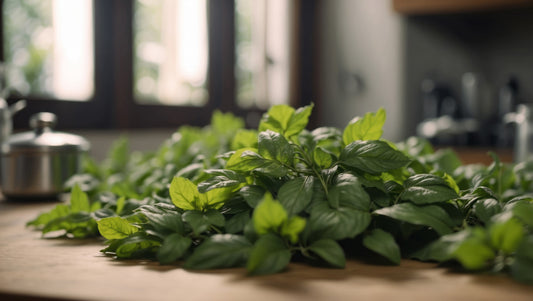by dr. laurie dohmen, vmd, ms, rh (ahg)
Pet Stress as Summer Ends: How to Manage It
Summer is unfortunately almost over; kids will be going back to school, the beaches will get less busy, and plants will start to prepare for winter. As we prepare ourselves and our children for the upcoming change in season, we need to prepare our animals. The changes in habits can be stressful for our pets. If there are children in the family, when school starts, they are around much less. Even if there are no children or 9-month schedules, as the days get shorter and colder, dogs get walked less and the sunny patches cats love are cooler.
Our pets are creatures of habit, and like consistent schedules. There is a reason for all the memes about our pets waking us on the days we try to sleep in! They expect to get up, get walked and get fed at the same time every day. So, when we change their schedules, we need to be very mindful about how we do it.
If we don’t prepare our pets for changes, their angst can cause behavioral issues, such as in separation associated misbehaviors. Pets can act inappropriately when stressed, cats can urinate outside the litterbox and dogs may destroy furniture. Did anyone see the Superbowl ad this year for Amazon? (If not, check it out here: https://www.youtube.com/watch?v=-bueUljGJ2M) Despite how heartwarming the ad is, this family did not prepare their dog for their sudden daily departure.
There are both behavioral and herbal solutions to stress in pets. The first behavioral trick is to start out slowly: leave for an hour at a time, then when your pet seems unfazed, increase the time until you can comfortably be gone all day. Like the video, both cats and dogs like to have friends. You could have 2 dogs, 2 cats, or even different species, like a cat and a dog. Racehorses often get goats as stable mates to keep them company and keep them calm. Leaving the television or a radio on also helps, it makes them feel like a human is close.
If your pet needs more support than that, herbs are a great way to go. So start with gentle, supportive herbs. Three of my favorites are ashwagandha (Withania somnifera), bacopa (Bacopa monnieri), and tulsi (Ocimum tenuiflorum).
Ashwagandha is a commonly used Ayurvedic herb, that is considered rasayana, which means that it is rejuvenative and promotes longevity. “In [the original Ayurvedic text] Charaka Samhita, W. somnifera (Ashwagandha) is mentioned as ‘Bajikarana’ and ‘Rasayana’ because it promotes health and longevity…[and] increase capability of individual to resist adverse environmental conditions [stress].” (1) In the West, Ashwagandha is considered an adaptogen. “The key to understanding adaptogens is their role in establishing and maintaining adaptive homeostasis by building the body’s natural resistance to stressors, which may be physical, chemical, biological, and psychological in nature.” (2) Another quality of adaptogens is that they must be safe for everyone, and not have any side effects or drug interactions. (2) What makes both ashwagandha and tulsi unusual among adaptogens is that they are both calming, while most adaptogens are stimulating. This quality can be supportive to mentally and emotionally stressed pets. There is even a study examining ashwagandha for stress-related inappropriate urination and defecation. (3) In Ayurveda, ashwagandha is used commonly for vata conditions, which are conditions in which the patient is unstable or scattered, as with a pet undergoing a lot of household changes. In terms of separation behaviors and social isolation, there is one specific study. This research article suggests that ashwagandha may support the modulation of social isolation and mood stabilization. (4)
Bacopa or brahmi, is a major brain herb in Ayurvedic medicine. It is considered to be very safe and has been studied for cognitive functioning and learning (so consider giving it to your children as well), antioxidant properties and for mood. There are many research studies suggesting that bacopa could reduce stress. (5) It is considered a nervine, meaning that it supports the nervous system in general.
Tulsi, also known as holy basil, is one of the most sacred herbs in Ayurveda. It is believed to promote longevity by reducing stress in pathways involving endogenous (made by the body) cortisol and the adrenal glands that produce this cortisol in the face of stressors. It has been studied for occasional nervousness, especially in those unwilling to adapt (sounds great for separation support!); and noise stress, which can be common in pets. (5) While considered an adaptogen in the West, tulsi may induce a decreased sperm count in breeding males. (3) (5)
So change your schedule slowly for your pets, give them (and maybe your human family) some nice supportive herbs, and ease into fall. Before we know it, the leaves will be on the ground and we will be surrounded by pumpkins!
References:
- Withania somnifera (L.) Dunal - Modern Perspectives of an Ancient Rasayana from Ayurveda. Mukherjee, P, et al. 2021, Journal of Ethnopharmacology, Vol. 264, p. 113157.
- Evolution of the Adaptogenic Concept from Traditional Use to Medical Systems: Pharmacology of Stress- and Aging-Related Diseases. Panossian, A, et al. 2020, Medicinal Research Reviews 41 (1), pp. 630-703.
- Williamson, E. Major Herbs of Ayurveda. Edinburgh : Churchill Livingstone, 2002.
- Protective Effect of Withania somnifera Dunal Root Extract against Protracted Social Isolation Induced Behavior in Rats. Gupta, G and Rana, A. 4, 2007, Indian Journal of Physiology and Pharmacology, Vol. 51, pp. 345-353.
- Sodhi, Virender. Ayurvedic Herbs. Bothell, WA : Book Publishers Network, 2014.




